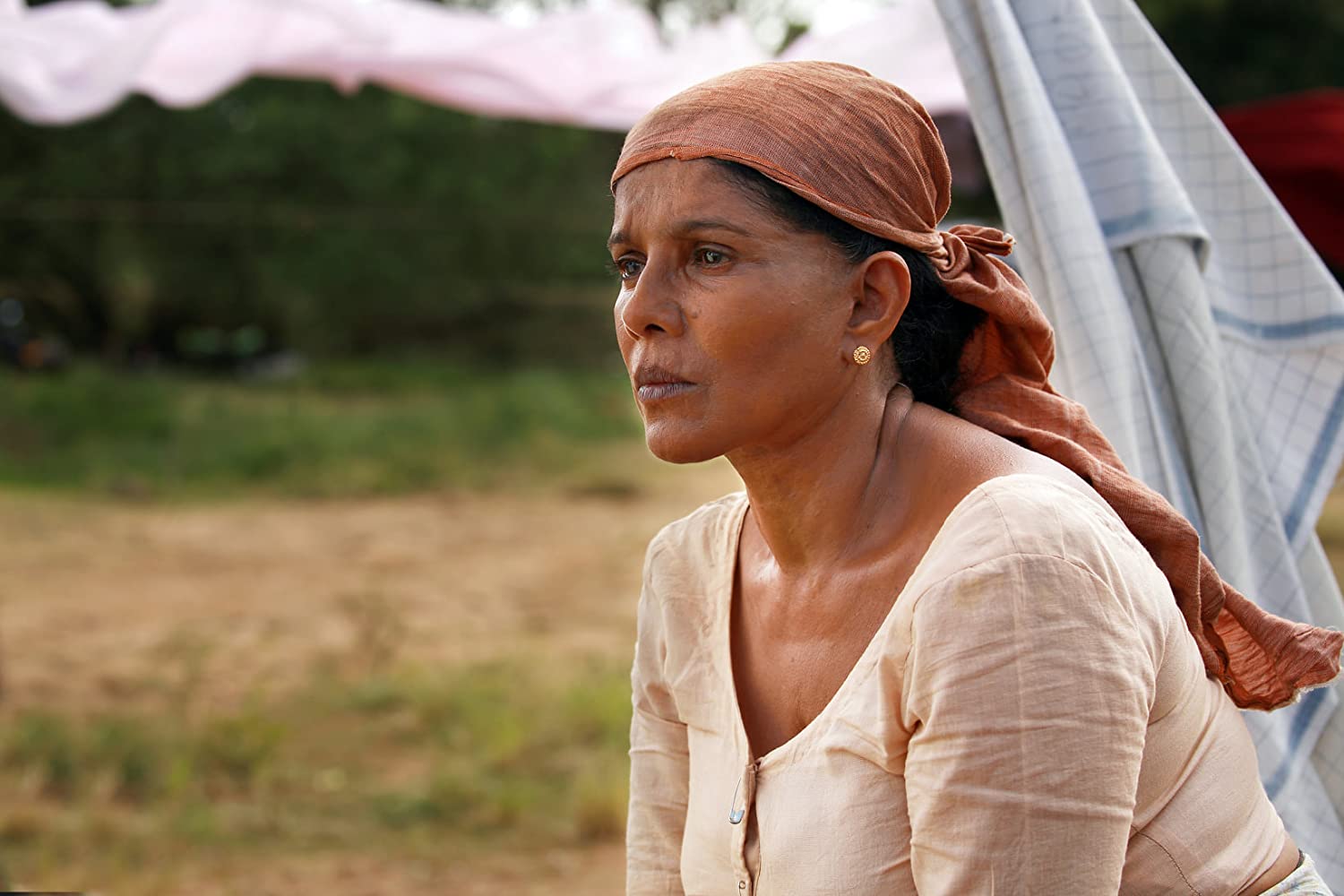
In what must be the easiest generalization ever, a mother’s love knows no seams. Or at least, we would want that belief to remain unperturbed. The mother in director Visakesa Chandrasekaram’s Sinhalese language film Paangshu is one such. Babanona’s (Nita Fernando) life goal is seeking a definitive closure to her son’s disappearance following an arrest by the paramilitary forces in November 1989.
Chandrasekaram’s film emerges from a simple surrounding. It is rural Sri Lanka plagued by the insurgency in the ‘80s. The hatred towards the ruling government is widespread and youngsters, including Babanona’s son, are seen to campaign hard to ensure that the upcoming elections fall flat. Unsurprisingly enough, one night, the man gets captured by the forces – making it the last time that he is seen by anyone. A long legal battle ensues and Babanona is quiet yet relentless in her fight to seek justice. She frequently mentions her recurring dreams involving her missing son.
A launderer by profession, Babanona is forever clad in white. The advent of washing machines can any day put an end to her profession but the woman lives by the day. A widow, she drowns her worries in her own solitude. Chandrasekaram creates a subtle yet concrete arc to her character. The prominent shade in the initial portions is that of grief over her son’s disappearance. This makes way to a version of curiosity as the film progresses. The final act is all about turning acceptant into her misery.
Paangshu does not project the mother to be extremely close to her son. In the early stages, we are not told whether her son had bred any affection for his only parent. There is this brief scene where a palm reader pointedly says that he never did. But she also asserts how he will be returning, to apologize to his mom. Now, wouldn’t that be hopeful to Babanona who is an ardent believer in prophecies? In another scene, we witness her seeking the advice of an astrologer over the very same mishap.
ALSO READ: ‘Jojo Rabbit’ review – a thought-provoking Nazi satire which is also great fun
The curiosity stage sees her persistently take part in the courtroom proceedings. She identifies the man who had arrested her son on that eventful night. Babanona also visits hospitals to verify whether it is her son who has been admitted there. Her eyes and ears are forever receptive – be it a tiny movement in the bushes or the sound of digging in her courtyard, late in the night.
As her mindscape moves on being accepting that her son would not reappear whilst you ensure maximum punishment to the ‘culprit’, she encounters the man’s pregnant wife. It is possible that, by then, Babanona has become used to the ways of the establishment – the very same cause that assassinated her neighbourhood’s woman leader and is also responsible for her son’s absenteeism. This complacency coupled with her disbelief in her son’s activities, Babanona rethinks about her recorded statement. Becoming a predictable prop in the premise is a puppy whom she adopts, after hearing how its mother was run over by a bus. (This mention instantly threw me back to one of the earliest visuals, where a dog relaxed wistfully, adjacent to a bus station.)
The finale is one of the busiest passages in the entire film and it projects the mother’s might and will-power to incredible levels. Add to it a performer as astonishing as Nita Fernando, it is impossible to not be in awe of the film’s nuances.
The cinematography (Dimuthu Kalinga) is highly functional in lending believability to the film’s quiet, uneventful landscape and tenor. The colour palette is minimal, highlighting whites in various intensities. The music score (Chinthaka Jayakody) and sound design (Aruna Priyantha Kaluarachchi) complement each other very well so that that the slow-burn mood of Paangshu stands alleviated.
In entirety, Paangshu is deeply involving even though it is devoid of conventional cinematic elements. The writing is effective to build the intrigue and maintain the suspense right until the last frame. Helped duly by performances (especially that of Fernando), the film’s attempt to throw light on Sri Lanka’s most horrifying political developments is highly successful and, at the same time, universal.

